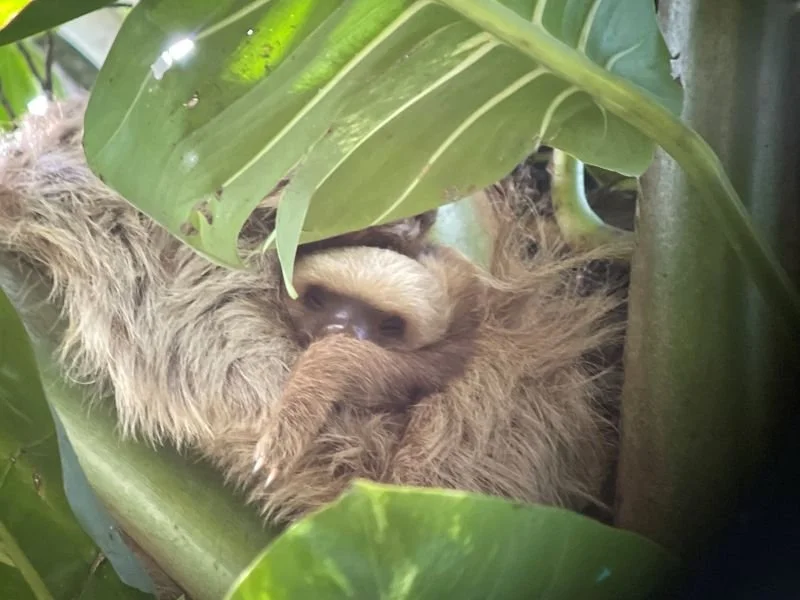A Surprise (But Not Really) | February 2025
We are still waiting for the perfect opportunity to replace Deborah's GPS collar, which has decided to stop working. But no need to worry - we always know exactly where to find her. And now, we know why she's been spending so much time high up in the canopy instead of her usual hangout spots: Deborah has a baby!
That's right - Deborah is officially a first time mom, which is a huge milestone.
The baby was named Mel by one of our biggest supporters, Deborah-the same person we originally named the sloth in honor of.
When we first collared her in 2022, she was around 12-18 months old. Now, at 3-4 years old, she's at the perfect age to start reproducing. We knew this moment would come, but we didn't expect it quite so soon!
Her little one, Mel, is already a couple of months old, but Deborah has been keeping her tucked away safely on her tummy. Since she spends most of her time curled up in a tight sleeping ball, it took usa while to spot the tiny, fluffy head peeking out. But now that we have, we are happy to report that Mel looks strong, healthy, and full of promise!
Baby two-fingered sloths typically spend a full 12 months with their moms before becoming independent, which means we have plenty of time to get to know Mel! We can't wait to watch them grow together and will keep you updated every step of the way.
About sloth moms and babies
A two-fingered female sloth like Deborah will give birth to a single baby after a gestation of 11.5 months, almost double than what's estimated for the three-fingered counterparts!
Sloths have occasionally been known to give birth to twins, but there is only enough room on the female's chest for one baby, so the weakest twin will be rejected. A few months ago, we received the incredible record of a two-fingered mother with two babies!
Read More: Sloths Raising Two Babies
The witnesses mentioned that one of the babies seemed smaller than the other. It's unclear whether this is another rare case where the mother adopted the second baby, or if the smaller baby is indeed a twin that is receiving less food. This wouldn't be unusual, as there are many examples of offspring gaining an advantage over their weaker siblings.



